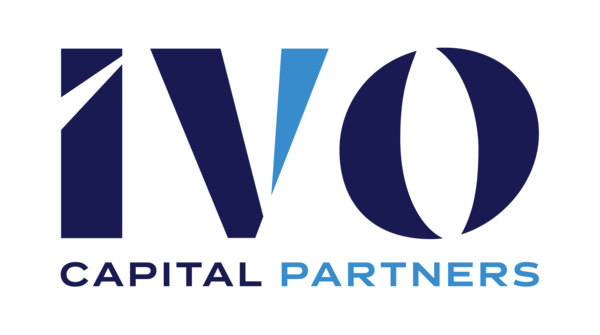The zip code effect or the mispricing of emerging markets: opportunities hidden by the sovereign ceiling
The zip code effect or the "mispricing" of emerging markets: a land of opportunities hidden by the sovereign ceiling
Identifying opportunities under the cap: emerging market mispricing caused by the sovereign cap

"Identifying and exploiting market dislocations caused by sovereign ratings caps offers a distinct source of alpha and illustrates the type of market inefficiency that underpins IVO Capital's emerging markets credit strategy."
Jeremy Landau - Senior Analyst at IVO Capital Partners
Summary
- Sovereign rating caps often give a false impression of corporate credit risk, particularly in emerging markets, by mechanically limiting a company's rating to that of the sovereign state or below, without taking into account its fundamentals.
- Emerging market ("EM") companies with strong financials, US dollar revenues and legal protections (such as Quiport and Azule Energy), are often undervalued, creating attractive, underpriced credit opportunities for experienced investors.
- IVO Capital Partners takes advantage of this market disconnect by applying rigorous bottom-up credit analysis to identify high-quality issuers unfairly penalized by low sovereign ratings, generating alpha through targeted yield arbitrage. This approach is at the heart of our "bad country, good company" investment thesis.
The sovereign ceiling mechanism
The sovereign ceiling is a fundamental concept in credit rating methodology. Historically, it has been used to cap the credit rating of public or private entities at or below the rating of the sovereign state in which they operate. The logic is simple: no entity should be considered less risky than the government that controls the legal system, monetary policy and financial infrastructure within which that entity operates. This approach takes into account systemic sovereign risks such as capital controls, currency inconvertibility, payment restrictions, expropriation and judicial or political interference, all of which can undermine the ability of even financially sound companies to service their debt. By using the sovereign ceiling, rating agencies make the implicit assumption that companies will behave in a similar way to the sovereign, even in times of crisis or default.
However, the actual application of the sovereign cap has evolved. Leading rating agencies such as Moody's, S&P and Fitch recognize that certain issuers (notably large global groups or infrastructure assets with strong currency revenues and legal guarantees) can be structurally protected from sovereign risk. Although rare and subject to strict criteria, some issuers have obtained higher ratings than their governments ("sovereign ceiling piercers").
Last November, S&P Global Ratings identified 93 local or regional companies and public institutions rated above sovereign in 22 countries, illustrating how globalization is reducing the dependence of certain entities on their state.
of origin. Examples include TSMC (Taiwan), Arçelik (Turkey), Embraer (Brazil), Toyota Motors (Japan), L'Oréal (France) and Nestlé (Switzerland). It is important to stress, however, that the ratings of these "sovereign ceiling piercers" remain closely linked to the creditworthiness of their governments, and cannot diverge significantly. Although they may be rated slightly above the sovereign, the degree of divergence is limited, with any sovereign downgrade generally exerting downward pressure on their own rating.
Mispricing creates investment opportunities
In most cases, especially in emerging markets, the sovereign ceiling continues to restrain companies whose financial strength, operational resilience, USD revenues and contractual protections would justify a higher rating. These companies are penalized not for their intrinsic risk, but for their unfavorable "zip code". The result is a discrepancy between real credit quality and market price, generating high yields that are not proportionate to the issuer's true risk.
For investors like IVO Capital Partners, who practice in-depth bottom-up credit analysis, these distortions offer compelling investment opportunities. The mechanical application of sovereign caps has long affected emerging markets, where sovereign risks are more persistent. However, this phenomenon is not exclusive to emerging markets: during the eurozone crisis, Southern European corporate issuers were also downgraded as a result of deteriorating sovereign profiles, demonstrating that even developed markets (DM) can suffer from sovereign mispricing.
At IVO Capital, our investment strategy is based on arbitraging this mismatch, which we refer to as the "bad country, good company" thesis. This is a central tenet of our process: taking advantage of sovereign rating constraints not to avoid risk, but to uncover and exploit undervalued credit opportunities.
Case study 1: Quiport vs. Aéroports de Paris (ADP)
A typical example is Corporación Quiport, operator of Quito International Airport in Ecuador, whose bonds are held in several IVO Capital funds. Quiport benefits from international air traffic, USD revenues deposited in offshore accounts, high EBITDA margins and low net debt leverage. On a standalone basis, its fundamentals would support a BBB- rating.
Ecuador's sovereign rating (CCC) means that its bonds are also rated CCC, placing them right in the speculative segment of the high-yield bond market (graph 1). This rating clearly does not reflect the issuer's actual credit risk. This rating clearly does not reflect the issuer's real credit risk, especially as Quiport continued to generate positive cash flow despite a decline in air traffic, and to service its debt without interruption when Ecuador suspended payments on its foreign debt in 2020.
Chart 1: Moody's sovereign ceiling applied to Quiport (International Airport Finance)

Source: Moody's
From a relative value perspective, the contrast with Aéroports de Paris (ADP), which shares a similar business model and comparable credit metrics but benefits from the French sovereign's Investment Grade rating, is striking: although fundamentally similar, Quiport's bonds offer a significantly higher yield and opportunity for return on investment (graph 2). This example perfectly illustrates arbitrage: investors are remunerated for a perceived risk, not a real one.
Chart 2: Credit quality similar to that of an airport in a developed country, but with a much lower rating

Case study 2: Oil producers in Africa - Azule Energy
The same disconnect can be seen in the raw materials sector, particularly in Africa. A relevant case in point is the oil and gas industry. Even in the event of sovereign default, the impact on upstream operators is generally limited.
Historically, when the IMF intervenes in troubled countries, it advises governments to maintain the integrity of existing contracts in strategic sectors involving international partners, a recommendation which is generally respected. Oil producers play an essential role in generating US dollar-denominated tax revenues and royalties for host governments. In addition, these producers often benefit from legal safeguards such as stabilization clauses, which protect them against retroactive changes to fiscal and contractual conditions.
A notable example is Azule Energy, which operates oil concessions in Angola. Azule is a 50/50 joint venture between BP (rated A) and Eni (rated BBB+), two well-established global energy companies. The company issued high-yield bonds in January 2025, currently offering a yield at worst (YTW) of 8.3% (which we hold in our flagship IVO EMCD fund). These bonds are rated B2 by Moody's, which is in line with Angola's sovereign rating. We believe this rating ceiling anomaly presents an attractive investment opportunity at current market yields, which do not represent the underlying credit quality of the issuer and its debt. In addition to a solid shareholder structure, Azule benefits from structural protections such as offshore payment accounts, hard currency export revenues and legal frameworks governed by New York or English law. These features considerably mitigate exposure to sovereign-specific risks, such as capital controls or local payment restrictions. In addition to all these elements, Azule's current production capacity (around 200,000 barrels per day) would probably justify an investment grade rating if it operated in a developed market such as the Nordic countries. Indeed, Moody's explicitly notes in its credit opinion that the underlying credit profile would justify a Baa2 rating, but that the final rating is constrained by the company's exposure to Angola.
Conclusion: Capitalize on sovereign cap arbitrage
The sovereign cap is a crude investment tool that, in many cases, overweights low credit default probabilities. However, for sophisticated investors willing to do the work, it creates attractive credit misalignments that can be exploited. Quiport and Azule Energy are emblematic of a wider inefficiency: sovereign-related pessimism masking fundamentally sound credit quality.
This theme is central to IVO's investment philosophy. For example, our flagship fund IVO Emerging Market Corporate Debt (IVO EMCD) is overweight Latin America, representing 45% of the portfolio versus 25% for the benchmark. Latin America, home to many high-yield rated sovereigns such as Brazil, Argentina, Colombia and Ecuador, offers fertile ground for our bottom-up credit selection strategy. Conversely, the fund is underweighted in Asia, where many sovereigns are Investment Grade and the ceiling effect is less significant. When yields are attractive in Asian credits, they generally reflect idiosyncratic corporate risk, not sovereign mispricing.
In today's market, where high-quality yield is scarce and credit spreads are compressed, identifying and exploiting these dislocations offers a unique opportunity for alpha creation, the essence of IVO Capital's approach to emerging market credit.
WARNING - THIS DOCUMENT DOES NOT CONSTITUTE FINANCIAL ADVICE:
The information provided reflects the opinion of IVO Capital Partners at the date of this publication. The information contained herein is not intended to be understood or interpreted as financial advice. It is shared for information purposes only, does not constitute advertising and should not be construed as a solicitation, offer, invitation or inducement to buy or sell securities or related financial instruments in any jurisdiction whatsoever. CONFIDENTIALITY NOTICE: The information contained herein is strictly confidential and may not be reproduced, redistributed, disclosed or transmitted to any other person, directly or indirectly. It is forbidden to copy, reproduce, distribute, publish, display, modify, create derivative works from, transmit or exploit this content in any way whatsoever, to distribute any part of it over any network, including a local network, to sell or offer it for sale, or to use it to constitute a database of any kind whatsoever.
IVO Capital Partners │Simplified joint stock company with capital of €250,000 Head office │ 61-63 Rue des Belles Feuilles, 75016 Paris │ 753 107 432 000 35 RCS Paris │VAT No.: FR 54 753107432
